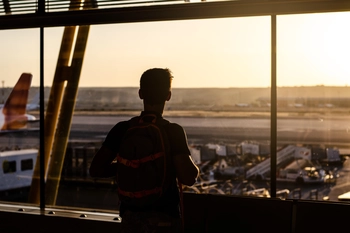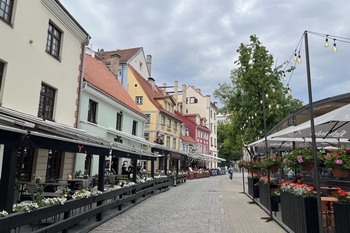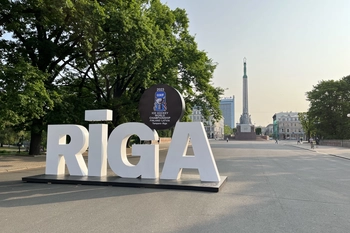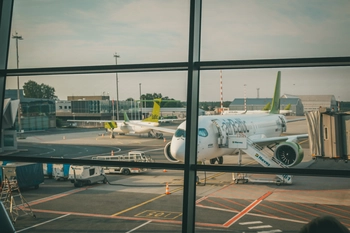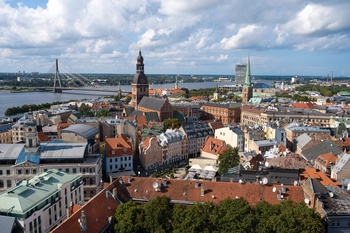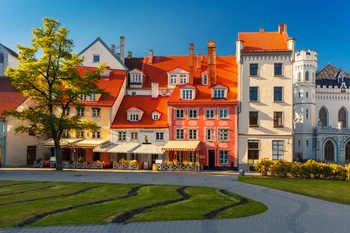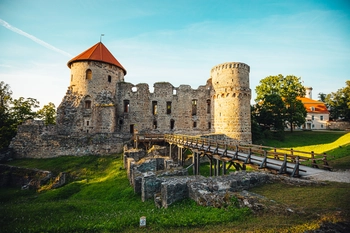The capital of Latvia is Riga. Riga has a fantastic location right at the heart of the Baltic region. Known as "The Pearl of the Baltics," Riga truly lives up to its reputation with its rich historical heritage, unique Latvian culture and breathtaking architecture.
Europe
Latvia: The Land of Rich History and Cultural Heritage
This page contains affiliate links. This means that I get a commission if you purchase through my links, at no cost to you.
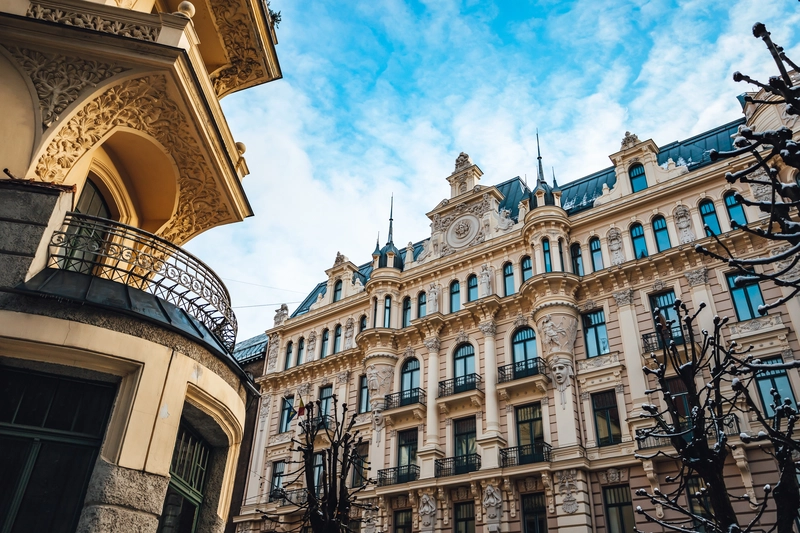
Latvia, a small country situated in Northern Europe, shares borders with Estonia to the north, Lithuania to the south, Russia to the east, and Belarus to the southeast. With a population of around 1.9 million and covering an area of approximately 64,589 square kilometers (24,938 sq mi), Latvia boasts an enchanting landscape adorned with verdant forests, majestic mountains, and a captivating coastline along the Baltic Sea. Renowned for its unspoiled nature, nearly half of its territory is veiled with lush woodlands, earning it a reputation as one of Europe's greenest nations. The abundance of lakes, rivers, and nature reserves provides ample opportunities for outdoor enthusiasts seeking activities such as hiking, camping amidst natural beauty, or observing wildlife.
In terms of climate, Latvia experiences moderate conditions characterized by mild summers and chilly winters. Each season brings its allure—vibrant red leaves adorning trees during autumn give way to picturesque snowy landscapes in winter. The proximity to the Baltic Sea greatly influences weather patterns in Latvia resulting in an oceanic climate that boasts relatively milder temperatures compared to neighboring countries. The cultural heritage of Latvia is exceptionally diverse and deeply influenced by its rich history. Latvian serves as the national language while Christianity is predominantly practiced among the populace with Lutheranism being prominent. Latvians take immense pride in their cherished traditions encompassing folklore and handicrafts which are beautifully showcased at various festivals and events held throughout the year.
Riga, the capital city of Latvia, is a vibrant hub of culture where various architectural styles from different eras, like the Middle Ages, Gothic, Art Nouveau, and modern design blend harmoniously. The heart of the city is the Old Town, a UNESCO World Heritage Site filled with quaint cobblestone streets, charming cafes, and breathtaking landmarks that create an enchanting atmosphere.
Over the past few decades, Latvia has made significant progress and gained recognition for its excellent education system, technological advancements, and innovative business environment. The country also places great importance on environmental sustainability and actively promotes ecotourism initiatives as well as renewable energy projects.
In summary, Latvia is an exhilarating destination that seamlessly combines natural beauty with a rich history and a thriving cultural scene. Whether you're exploring historical monuments, immersing yourself in nature or even enjoying the dynamic cities it offers unique and unforgettable experiences to every visitor.
Frequently Asked Questions about Latvia
- What is the capital of Latvia?
- What currency does Latvia use?
The currency in Latvia is the Euro (EUR), which has been the official currency of the country since January 1, 2014.
- Are credit cards accepted in Latvia?
Credit cards are generally accepted throughout Latvia. Major credit card brands like Visa, MasterCard and sometimes American Express are commonly used at hotels, restaurants, shops, and other businesses in urban areas and tourist hotspots. However, it's advisable to have some cash with you, especially if you plan to visit more rural or remote areas where card acceptance might be more limited.
- What is the best time to travel to Latvia?
The ideal time to go to Latvia varies depending on what you prefer. Summer provides enjoyable weather, extended daylight hours and lively festivals. However, it can also be crowded and more expensive. Spring and autumn bring milder temperatures, fewer tourists and picturesque scenery. Winter is perfect for winter sports and holiday markets but expect cold weather and shorter days. If you're looking for vibrant events, choose summer; for a more peaceful experience, go in spring or autumn; and if you're into winter activities, then winter is the best season to visit Latvia.
- What is the population of Latvia?
The population of Latvia is around 1.8 million people.
- What language do they speak in Latvia?
In Latvia, the official language spoken is Latvian. It falls under the Baltic language family, alongside Lithuanian and is widely used by the majority of Latvians in various aspects of their lives such as government affairs, education, media and everyday conversations.
- Do I need a visa for Latvia?
Latvia became a member of the European Union in 2004 and signed the Schengen agreement in 2007. As a result, citizens of Schengen Area countries can enter Latvia with just an identification document. If you are not from a Schengen Area country planning to visit Latvia, you will need a Schengen visa. If you plan on visiting Latvia for a period of up to 90 days within a span of 6 months, you can go ahead and apply for a Schengen visa. Visit latvia.travel for more information.
- Is Latvia a safe country?
Latvia is generally considered to be a safe destination for travelers, as it has a relatively low crime rate. However, it is advised to exercise caution in crowded areas and remain vigilant against pickpocketing. It is recommended to use reputable modes of transportation and avoid taking unofficial taxis. Additionally, it is important to be aware of potential scams and only use authorized currency exchange offices. To ensure a smooth trip, it is advisable to have proper health and travel insurance in place. Respecting the local laws and customs will help you avoid any unnecessary issues during your visit. Lastly, don't forget to check your government's travel advisories for any updates or important information. While Latvia offers safety, adopting responsible travel practices will further enhance your overall experience.
